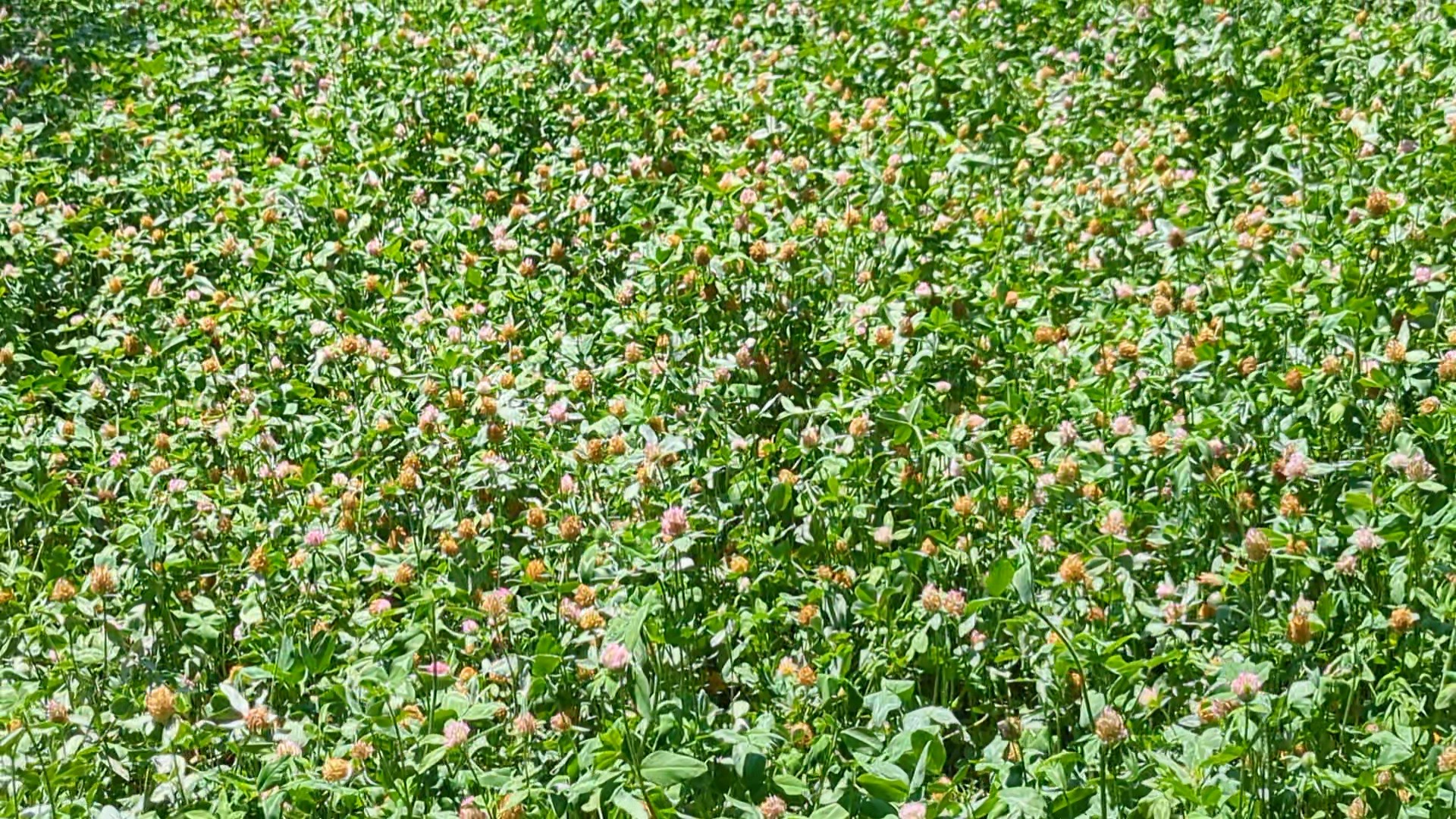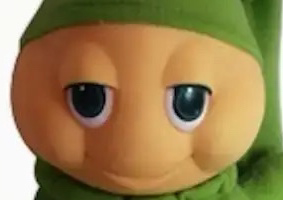A tick wrote this post
Yea a lot of people are clueless to how much of an effect lawns have on keeping pests away from the house. Mice love living in tall grass while using your house as a buffet and bathroom.
Yet people will blame industry when our manicured cities take up far more space and are ecological disasters.
If we keep blaming those that make the products we demand and not us the consumer, the earth will shortly look far different.
Mice also get eaten by the various predators that would move in to eat them.
And yellow jackets
Subterranean ones. Makes me shiver thinking about it
I’m laughing way too hard at this.
Opossums ready to eat
We introduced a ton of clover into our lawn 4 years ago and have been letting it self-seed & spread. It’s been great.
My boomer-y neighbors don’t like it and make comments, but ours is the only green lawn for several blocks because it hasn’t rained for shit all summer. Plus we have wildflower areas so we also have all kinds of bumblebees, butterflies, and dragonflies cruising around.
deleted by creator
If their in california its entirely believable, after awhile it becomes too expensive to water, hence why I have dirt.
There in California it’s entirely believable.
I am sorry I was not 100% precise with my internet words. I will go count the minority of lawns in my neighborhood that don’t look like shit after work and report back with exactly how many lawns look bad, how many look just okay, and how many are lush and green.
I retract my overarching point, made via a personal anecdote and which I presumed was clear, that a more sustainable lawn is looked down upon by many people who favor turfgrass while demonstrating characteristics that those same people generally find desirable.
Edit It also might not have been a full ton of clover. It may have only been ten pounds of seed. Excuse the hyperbole.
Some places legit ban watering during dry times
Many places enforce watering restrictions. Usually it’s “even house numbers on even days, odd on odd,” then when it gets hot out, watering only allowed at night. For almost a month my area (in northern Illinois) had a complete water ban, until this recent week now that we’re getting so much rain we’re flooding.
They do the even/odd thing in my area, as well. A couple years ago it was super bad, and there was a full ban for like a whole month. I think people were getting fined a surprising amount for watering.
After a few years of that to set the tone, watering one’s grass has kinda become unfashionable. At least in urban areas like mine.
Nobody waters their lawn in Seattle. The only green you will find in the summer is from clover or maybe creeping thyme.
We’ve tried both clover and thyme, but we can’t get them to really take off. But I think we just weren’t doing enough at a time and wildlife was eating it all. Our current course of action has been killing sections of grass with a tarp, then planting the clover and our first patch is doing well.
You do need to water it pretty aggressively at first, or be lucky and have daily rain for about a week. ALSO, the first year is kinda underwhelming in general. It really tool off in subsequent years for us. This is our fourth (I think?) year of the clover lawn and it’s really nice now.
Good luck with yours!
I showed this to my city’s By-law officer. No luck…
It might help to make it look more intentional, such as a bordered flowerbed with native plants in it that just happens to be the size of most of your front lawn.
deleted by creator
Good job at least trying to do something. My current city and previous home city have finally started doing more native plantings and my current local city’s uni has started up a significant prairie restoration project right outside the city. There are also a few small prairie restorations going on inside city limits mostly in the burbs where there’s space but I can’t seem to find out what org is running them.
I hate lawns. They suck water like nothing, require a lot of work and never look quite the way you want.
But let’s keep things in perspective here. The big argument against lawns is water use. I agree. But in California, for example, all residential water use accounts for less than 15% of the total use of water in the state.
If we want to save the environment we should start with what’s taking the remaining 85%.
My main argument against lawns is the massive amounts of pesticides, weed killers, and fertilizer they require to look like the ones in the picture. Coincidentally, that’s the point this meme is making.
Also, just because lawns aren’t the worst possible use off water that you can think of, doesn’t make them not wastes of water. Just because almond farms in California use more water that lawns on the same state doesn’t change the fact that lawns waste water. Those same California almond farms sissy have nothing to do with the thousands of suburbs in other areas which have HOAs that require grass lawns.
Aside from all that, not all of the 85% of industrial water usage is wasteful. Efficiency needs to be improved, but we do need to grow food to eat.
So don’t let perfect be the enemy of good.
I partially agree with your comment.
I’m not saying that we should not improve lawns (by removing them), but rather, that we should also go after the big offenders, and maybe focus on them first because that’s where the most immediate gains are.
Every time we have a drought, I see the old drama of taking shorter showers, people filling buckets in the shower to flush their toilets later, etc, all while farmers are planting Alfalfa to export it for cheap. IIRC, alfalfa was the largest consumer of irrigation water, which breaks down the farmers mantra that “we are using water to grow your food”.
Even when you consider almonds, which we do eat, it’s not a staple food. Nobody will starve if the almond industry collapses. They make a lot of money but mostly for a closed set of farmers. They’re also not a large employer on the state.
besides, industries like that don’t even have to collapse. they should just pay for the commons they use to keep said commons sustainable, which would make their product more expensive, and yes, definitely cause a downturn in business, but they would survive in the end, and so would the rest of us.
I was talking to a guy at my neighbor’s party and he asked how I keep my lawn looking so good. I said “I mow it infrequently, keep it long, and don’t try to get rid of weeds.” In the hottest part of the summer mine still looks good, and it’s full of clover and dandelions for the bees.
Removed by mod
You may not like it, but that is still better than the one on the left.
deleted by creator
Sure! This is from early June before I mowed it back some. It’s not perfect, it doesn’t have the whimsical wildflower field feeling I want it to have but the bees seem satisfied.

I am doing this to my lawn. Lots of “weeds” but I see some flower. I am not sure if this is good enough to help the local evosystem, maybe I should plant more local flowering plants.
It probably helps more than you realize. I’ll never say no to someone asking if they should plant flowers though!
Look up the weeds using Google Lens. A lot of them are only “weeds” because they aren’t “turf”, you know? Like, I understand calling poison ivy a weed (despite it being native to my area) because it can cause a lot of pain. I understand calling gripeweed a weed because it really spreads like wildfire. (I believe it is not technically invasive yet.) But Virginia Buttonweed? Come on! It’s gorgeous! It’s not hurting anyone.
or this
The one on the right is not a common prairie ecosystem, but something that someone’s created that supports native plants. There’s a difference. The picture I link above is tall grass prairie, a tragically endangered ecosystem in Canada and the upper states. The one in the meme is a essentially a big garden.
Both have value! but one has evolved over time, while the other was recently created. The tallgrass prairie is fantastic for creating fertile soils, and sustaining gargantuan herds of bison (😭) but the one on the right blows it out of the water for pollinator habitat.
We have a chunk of our yard (about 30x60’) dedicated to tall prairie grass! I planted it a few years ago not thinking about how prairies aren’t terribly wildflower-dense.
It was disappointing at first for not being so vibrant, but it’s where our dragonflies like to chill so now it’s the area I’ll protect first. I’ve even considered watering it a few times when it was very dry, despite drought resistance being part of the point.
With climate changing driving the Eco-acpocolypse and us likely to reside in an ecological hellscape, I’m sure the grasses thank you.
Still better than a lawn
Not when you have small children…or a bee allergy.
Have your small children go out and play with the snakes and bugs
The snakes and bugs will kill ya where I’m from.
skill issue
True but I also like to golf
That’s actually what my needy Kentucky bluegrass lawn looks like right now lol, most prairie grass lawns in my area are more drought resistant than the “virgin lawns.”
just adding to this cause I found a good picture, really want to get a fine fescue & pollinator mix alone the fine fescue is nice, but the bee pack has super cute flowers
The fescue looks so pretty!
I KNOW LIKE A SEA OF GRASS
That just looks like overgrown and dead grass, not multiple types of plants.
I can’t play catch in a field of wild flowers, also snakes.
The snakes are only there to eat the mice and rats this brings. Which is why most locales in the US won’t let you do this. If you want a similar effect of this to simply encourage pollinators you can plant a native pollinator garden and get some pollinator houses. Similar, but smaller effect without the mice and the county/city giving you flack.
This is a long winded way to say you have no idea that yards can be utilized for recreational activities or art and that’s why we have them.
No one uses their front yard for recreation. The only “art” I see in yards are the shitty Christmas and Halloween decorations or lawn gnomes and pink flamingos. Communal areas are used for recreational activities more often than backyards even in suburbia especially after the age of about 12.
Most people that actually leave their house and are physically active use their yard…
No, you don’t, plenty of people do. And my town is filled with various holiday decorations, flower beds, and shrubbery. It’s not the corporate overlords indoctrinating this idea, people like decorating their house for Halloween.
The subdivision I currently live in, squarely in suburbia, has like a dozen kids out every single night playing in various front yards. The parents hang out in the driveways to monitor. Been that way for over a decade. All I and my friends did when I was younger was either play video games or dick around in the yard, playing football or whatever we were doing at the time. The park was far away, and we couldn’t drive, and our parents worked. We had a yard 4 feet from the front door, where else are we gonna play?
Maybe in town you’d go to the park because the other option was the street.
Another viable option isn’t to completely convert lawn but just make one or a few native plant beds . If you aren’t willing to give up the lawn completely, you could still convert smaller portions of it.
Also sneks aren’t that bad.
You could also convert portions of your lawn to something like clover, which will be more “lawn” like while being much better for pollinators
check out the 'no lawns’ community on solar punk
Hi there! Looks like you linked to a Lemmy community using a URL instead of its name, which doesn’t work well for people on different instances. Try fixing it like this: !nolawns@slrpnk.net
deleted by creator
You can in clover or creeping thyme though. It also does not get real tall you do not really have to mow.
Snakes are better than playing catch
living in North American style suburbia 🗿
I grew up in a rural area where most lawns had lots of clover, wildflowers, stuff like that. Never realized that’s considered “unusual” until I left the area and realized, “wow, most suburbs don’t have that!”
A colorful biodiverse lawn is nice and all, but I’d prefer not to be harassed by all my neighbors, eaten alive by bugs, and be unable to use the lawn for anything other than looking at and feeling smug.
That’s funny because that’s exactly how lawns were created - to showcase that lords were wealthy enough to waste land rather than use it for food production. it’s essentially the ‘smash a bottle of expensive champagne challenge’ of the feudal period.
I thought lawns were placed around castles so that besiegers couldn’t get any cover nor have lumber for siege weapons.
This is hypothesized as to how they began, but back then they wouldn’t have used turf grass, the just cut down the trees and kept vegetation low. It was an entirely tactical use though. Then it’s believed that the concept at some point started morphing more into a sign of prestige and initially would have primarily consisted of low growing vegetation like thyme. Then of course eventually turf grass was introduced and the concept migrated around to various parts of the world. It was considered a sign of prestige since it was a lot of manual work and it generally meant you had to be able to afford a groundscrew to keep it consistently maintained. There was also the fact that you were showing people you didn’t need to use your own land for food production.
Then some time in the mid-1800s, rudimentary push mowers were invented and it began to become more accessible. By the mid-1900s almost every new American housing development had a lawn since the technology had become advanced and accessible enough for any middle or working class family to maintain a lawn on their own. This was also influenced by marketing and suburbanization.
So while it is believed the concept of a “lawn” started as a tactical defense mechanism, the modern concept is more closely and directly related to the rich/nobility using them as a status symbol. IMO they’re clearly still used as status symbols since it’s exceptionally common for people to judge others for how pristine their turf grass lawn is maintained. I’ve even recently had someone mention to me that they know how to tell who the trash is in the neighborhood based on their lawn. I know they’re also used for recreation, but that can even be considered as part of the status symbol aspect as a poor person might not have a lawn and would have to go to the park with the other lawnless riffraff for their recreation.
Get clover and creeping thyme. Neither grows tall and both stay green without really any watering.
Nice try EpiPen.
I’m trying to get that. The red clover took over and the bees love it.
Say goodbye to lawns! Yes!
Do we have a nolawn here on Lemmy?
If you dont atleast have 1 part of your garden unmowed youre a weirdo with bad taste to me
I wish I could HoA would throw a fit. Long term plan is more rual and will try to keep it local for most of the “lawn”
















